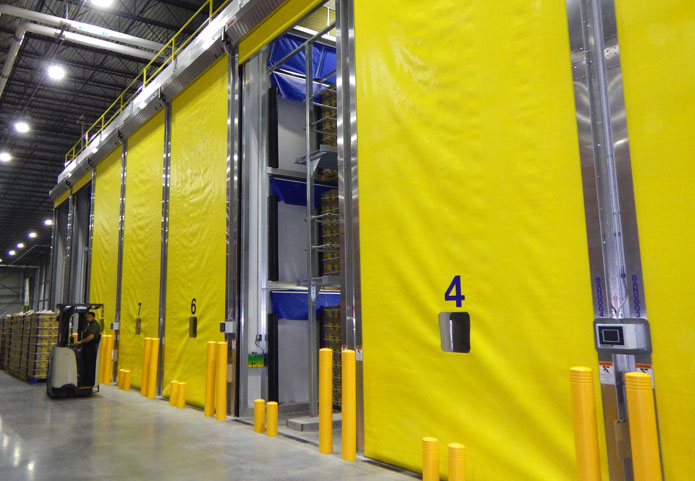The word fresh is now a throwaway phrase used by food manufacturers and retailers, but what does it mean legally? The term can be a little ambiguous to say the least.
How do these food importers keep food ‘fresh’ and ready to eat. If you eat strawberries, in December, brought in from Africa how do they keep that produce fit for consumption? And is it fit for consumption?
What I unveil may shock you all.
What does fresh mean?
How do food importers and retailers keep food in good condition?
What chemicals do these imported foods contain?
Do these chemicals cause any harmful side effects?
Legally Fresh
Do you ever wonder why a lot of the fruit and vegetables we eat do not taste right? It may look like an apple, but it certainly does not taste like the apples I ate as a kid.
A lot have a light chemical taste to them and are quite watery. Some of us are old enough to remember that when you ate an apple it tasted of apple, not chemicals.
In this article, I’m not going to discuss what was sprayed on produce before picking this is all about how they keep food fresh and ready to eat after it’s been picked. (1)
Fruit and Veg is brought into the UK from all over the world, Argentina, Australia, New Zealand, Africa and Asia.
This article will be about what happens after the produce is harvested, how do these huge companies store and keep it all from spoiling. We are going to start with what the term ‘fresh’ means in the food industry.
Fresh is a generic term meant to indicate that the fruit and vegetables are not processed, (canned, pickled, preserved or frozen). What it does not tell us is, that it’s been sprayed with deadly poisonous gas.
The word fresh gives a thing, ‘that just been picked off the tree’ sound and feel to it. But what good is it if that thing is infused with toxic chemicals, that you’re about to eat? (2)
Food Standards Agency Legal Jargon
“The term “fresh” may be used to describe fruit and vegetables that have been washed and/or trimmed, provided the fact they have been washed and/or trimmed is also indicated” (3)
How do food importers and retailers keep food “FRESH”?
When imported fruit or vegetables have been harvested, then sorted into size, shape and quality. They’re picked early, very early and can be stored sometimes believe it or not, up to a year before we eat them!
Here are a few examples.
Apples (stored for 6-12 months) In the UK we import two thirds of our apples mainly from South Africa or New Zealand. Apples are submerged in water filled bins so they ‘float out’.
This is the ‘pre-sort’ stage defective apples are removed, then soap and chlorine are applied and rinsed with hot water. The apples are then brushed clean. US apples can be ‘waxed’ then they are hot air dried.
Put onto pallets the apples then go into cold storage, where their respiration is slowed. Oxygen levels are lowered to put the apples to sleep for 6-12 months. (4)
That’s why apples have a slight chemical taste to them sometimes, but no apple taste just very watery. (5)
Bananas (stored for 14 days) 90% of all UK Fairtrade bananas come from Latin America & the Caribbean. They are washed and shipped in refrigerated ships and kept at 14C, this inhibits ripening. The trip to the UK takes about 6 days.
Brought from the docks in refrigerated lorries, the bananas are hard and green. They are then put into ripening rooms. The rooms are sealed and heated for 12-16 hours.
When the pulp heats to 17C, Ethylene gas cylinders are discharged, the gas alters the hormonal process of ripening. The room is kept closed for 24 hours.
The room is then ventilated for 3-4 days at 17C, extractor fans to get rid of the highly toxic ethylene gas. Large amounts of C02 and other gases are produced as the fruit ripens. (6) (7)
Potatoes (stored for 2-12 months) 96% of the UKs imported frozen spuds come from The Netherlands and Belgium. (8) But how are these potatoes stored?
Most potatoes can keep for up a year if they are cured. This is done by storing them at a moderate temperature of 20C and in high humidity roughly 80-100% for 1-2 weeks.
Potatoes intended for longer term storage a treated with a ‘chemical inhibitor spray’ which is applied in the field, during grading or in the cold store.
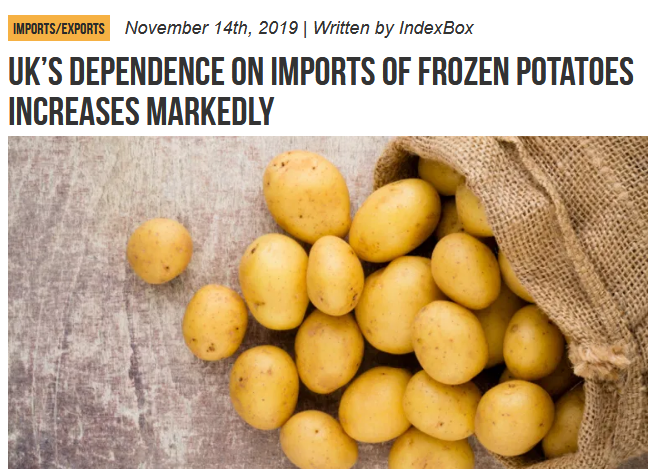
In this section we will look at a few industrialised chemical formulations that either delay or hasten ripening in fruit and vegetables.
But what are these chemicals and what health issues can they cause?
Fysium and AgroFresh companies that use 1-methylcyclopropene or 1-MCP used on Apples and other fruits.
AgroFresh Solutions Inc is a traded stock with a Market Cap of around $120m. Their brand of SmartFresh is a delayed ripening product.
In their words, “Puts ripening “on hold” to boost your storage potential”
Their marketing blurb doesn’t say to improve taste, quality or add additional nutrients for the benefit of the consumer. Nope just boosts the products longevity and profits.
It uses 1-methylcyclopropene or 1-MCP to do this. 1-MCP has a classification as a Plant Hormone and is commercially used to slow down the ripening of fruit and maintain the freshness of cut flowers. (9)
1-MCP is a pesticide.
Health effects of 1-MCP
In a 2005 study by EU-EFSA researchers found no adverse effects from the use of 1-MCP. But the IARC found that the impurities this product creates did cause some carcinogenic and genotoxic issues in rat studies. (10)
The two impurities are 1-chloro-2-methylpropene (1-CMP) and 3-chloro2-methylpropene (3-CMP) (11)
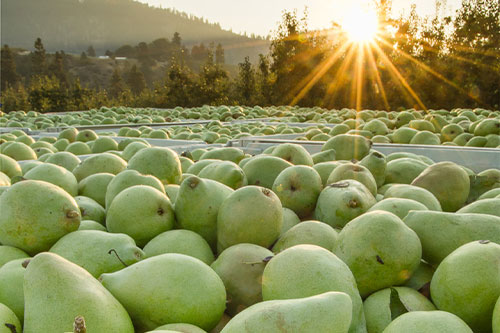
Fast ripening fruits may contain harmful chemical additives. Calcium carbide or calcium acetylide is commonly used for welding, it is extremely hazardous once dissolved in water, because the carbide produces acetylene gas. It also contains Arsenic and phosphorous.
Q. Does fruit contain water?
A. YES
Calcium carbide is being discouraged worldwide while other derivatives like calcium ammonium nitrate, calcium chloride and calcium sulphate are also used as ripening agents.
‘We report the case of a previously healthy 5-year-old girl with no chronic disease history who was transferred to our Emergency Department with an 8hr history of coma and delirium. A careful history from her father revealed that the patient ate unripe dates treated with calcium carbide’ (12) (13)
Source https://www.researchgate.net
Health
Acetylene gas causes neurological issues, headache, dizziness, mood disturbances, sleepiness, mental confusion, memory loss, cerebral edema and seizures. There have been no long term studies.
Below is a video a company using Ethylene Gas in Fruit Ripening Rooms
Maleic Hydrazide MH40 is a pesticide holding a Herbicide Resistance Classification (HRAC). MH40 reduces storage losses of potatoes and onions, it is a ‘plant growth regulator’. It is a synthetic compound and has a mutagenic effect on the plant’s cells. It also alters the plants hormones.
“Maleic hydrazide does not appear to cause any adverse developmental or reproductive effects of concern. The potassium salt (K-MH) was not found to be carcinogenic and has been classified as a “Group E” carcinogen, a chemical that is not considered to be a human carcinogen”
Maleic hydrazide is of low acute toxicity. It has been shown to cause genotoxic effects in some mutagenicity studies. However, in view of several negative cancer studies, its genotoxic hazard is considered negligible. The contaminant hydrazine has been shown to induce tumours.
Source EPA.gov
I get very twitchy when I hear words like, does not appear or possible carcinogen, or not considered carcinogenic. In other words they do not know.
Years later BOOM!
Houston we have a problem.
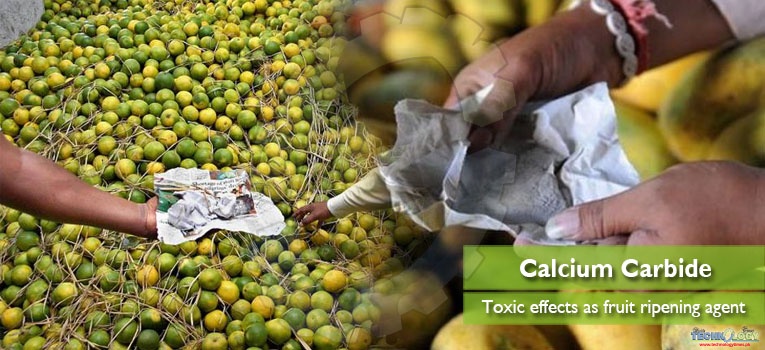
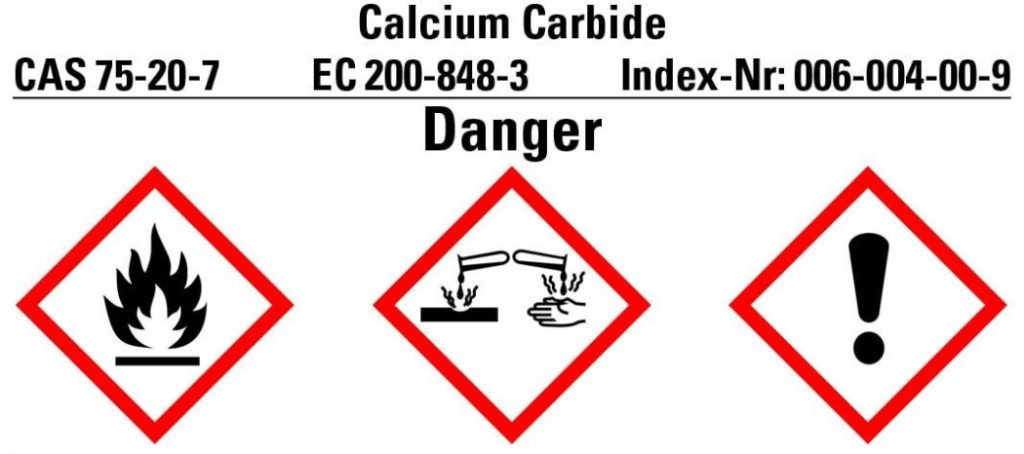
Why is that? I’m not saying that a little bit of something will make us ill instantly.
It is a cumulative effect, more toxins equal more toxic residues left inside our bodies. We have pesticides, chlorinated water, and all the other thousands of industrial chemicals to deal with every day.
Throw into the mix our MTHFR genes being turned off, and our bodies have stopped eliminating poisonous substances full stop. And all around us we can see these cumulative effects that industrial synthesised chemicals are having on the health of us all.
Yet we do nothing. Are we mad?
There are no doubts that the “Big Agri” method of production of food has changed the way we eat; the quality of the food consumed has had a massive negative impact on our health.
You may think you are eating healthy foods, but the hidden toxins are driving our health decline. SmartFresh, Calcium Carbide, and Maleic hydrazide and more are used on the foods we eat every single day. Every mealtime. Probably every mouthful.
Many different studies including the one published in 2004 by The American College of Nutrition Journal (16) showed the decline in the amounts of essential nutrients in soil, like; calcium, phosphorus, iron, vitamin B2 and Vitamin C, Magnesium, Zinc, Vitamin B6, Vitamin E and even proteins, found in fruit and vegetables over the past 50 years.
Hormones in plants are meant to be eaten by us or other animals. If something or things upset that natural course of events, then there will be a cause and effect that develops. That effect will be the decline in our immunity or digestive capabilities.
That is obvious isn’t it?
Plants are not meant to have petrochemical biohazards sprayed on them, and we are not meant to eat poison.
It is either a nutrient or a toxin, it is that black and white. End of.
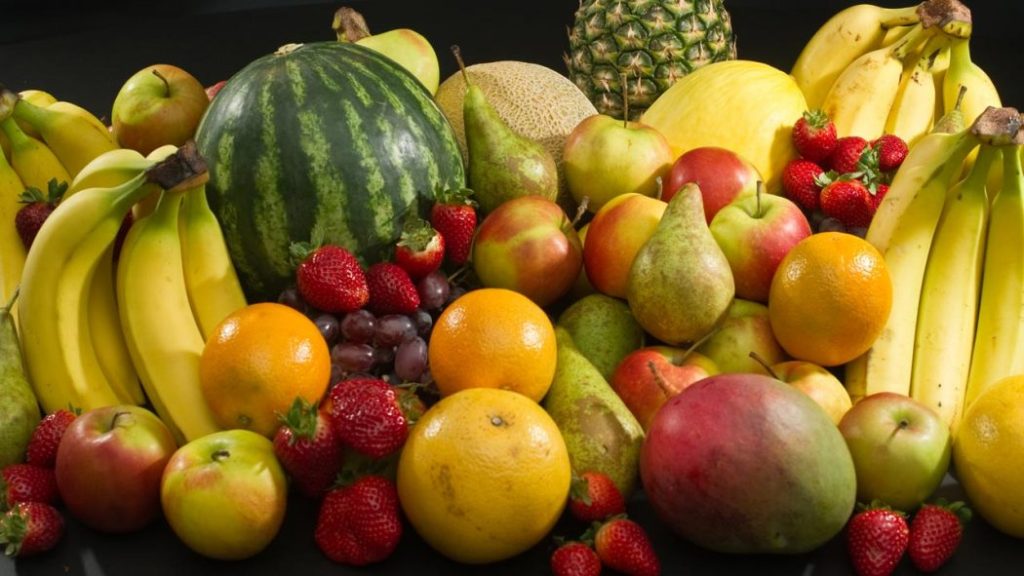
https://www.froghop.co.uk/food-claims-what-does-fresh-mean-in-food/
https://en.wikipedia.org/wiki/Fresh_food
https://www.5aldia.org/datos/60/PDF_4_5106.pdf
https://www.bbc.co.uk/news/av/business-11434691
https://www.theguardian.com/lifeandstyle/2003/jul/13/foodanddrink.features18
https://www.fairtrade.org.uk/media-centre/blog/top-12-facts-about-fairtrade-bananas/#:~:text=Most%20of%20the%20bananas%20sold,Latin%20America%20and%20the%20Caribbean.
https://www.bananalink.org.uk/all-about-bananas/
http://calag.ucanr.edu/download_pdf.cfm?article=ca.v012n04p6
https://en.wikipedia.org/wiki/1-Methylcyclopropene
https://www.worldhealth.net/news/produce-suppliers-are-now-using-a-chemical-freshness-preserver-technology-on-your-fruits-and-vegetables-but-is-it-safe/
https://www.naturalnews.com/2017-07-26-cancer-industry-anti-cancer-foods-apple-peel-turmeric-root-and-grape-skins-just-found-to-beat-prostate-cancer.html
https://en.wikipedia.org/wiki/Calcium_carbide
https://www.atmph.org/article.asp?issn=1755-6783;year=2012;volume=5;issue=3;spage=150;epage=156;aulast=Asif
https://archive.epa.gov/pesticides/reregistration/web/pdf/0381fact.pdf
http://sitem.herts.ac.uk/aeru/ppdb/en/Reports/422.htm
https://en.wikipedia.org/wiki/Calcium_carbide
http://www.inchem.org/documents/iarc/vol63/1-chloro-2-methylpropene.html
https://www3.epa.gov/pesticides/chem_search/reg_actions/registration/fs_PC-224459_25-Nov-09.pdf
https://www.fysium.com/technology
https://www.getthegloss.com/article/the-ugly-truth-behind-fresh-fruit-and-vegetables
*Disclaimer – Please note, we are not Doctors or trained medical professionals. We are not giving medical advice. Check with your Doctor or health practitioner before trying anything.

